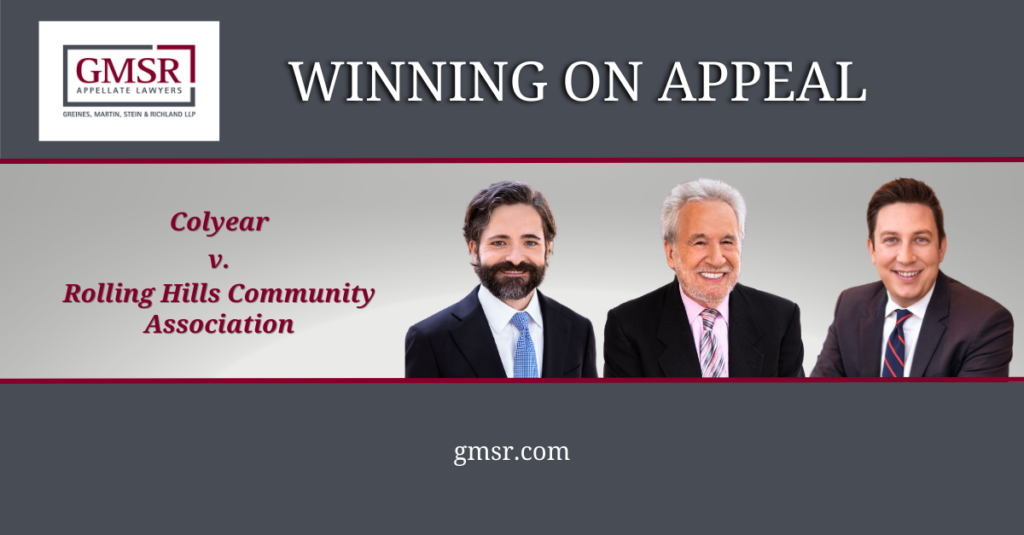GMSR’s client owns property within the Rolling Hills Community Association (RHCA). The area was developed over decades, and the developers recorded a series of restrictive declarations bringing additional tracts into RHCA. Some early declarations contained a “tree cutting covenant” allowing RHCA to enter private property within a tract and cut trees to preserve neighbors’ views, but many declarations recorded against later-developed tracts omitted that covenant. Today, a significant minority of RHCA properties are not subject to restrictive declarations that include a tree cutting covenant.
Eventually, RHCA’s board attempted to enforce the tree cutting covenant against all RHCA properties, regardless of whether the declaration recorded against a particular property included that covenant. To protect the many mature trees on his property, GMSR’s client sued RHCA, alleged that the declaration governing his property did not include the tree cutting covenant, and sought to prohibit RHCA from enforcing that covenant. The trial court sustained RHCA’s demurrer, but the Court of Appeal reversed.
On remand, the trial court ruled that the governing declaration’s terms did not grant RHCA authority to cut the client’s trees, so RHCA had no such authority. RHCA appealed the judgment and a related order awarding the client more than $1.3 million in attorney fees.
In the second appeal, the Court of Appeal held that the tree cutting covenant could not be enforced against the client’s property, rejected RHCA’s contrary construction of the governing declaration, and published its holdings on those issues. The Court also ruled that the client could recover his attorney fees from RHCA.
To read the Court of Appeal Opinion, click here: Colyear v. Rolling Hills Community Association of Rancho Palos Verdes (2024) 100 Cal.App.5th 110 [Second District, Division Four].
.


© 2025 Greines, Martin, Stein & Richland LLP.
All rights reserved. Disclaimer - Attorney advertising. Prior results do not guarantee a similar outcome.
6420 Wilshire Boulevard, Suite 1100
Los Angeles, California 90048
p: (310) 859 7811 | f: (310) 276 5261
50 California Street, Suite 1500
San Francisco, CA 94111
p: (415) 315 1774
© 2025 Greines, Martin, Stein & Richland LLP.
All rights reserved. Disclaimer - Attorney advertising. Prior results do not guarantee a similar outcome.
We welcome your inquiry. However, sending us an email does not create an attorney-client relationship. For that reason, you should not send us any kind of confidential information. Until we have agreed to represent you, we cannot be obligated to keep it confidential.